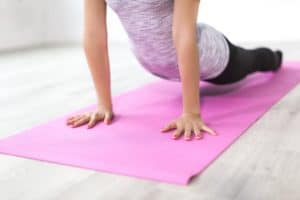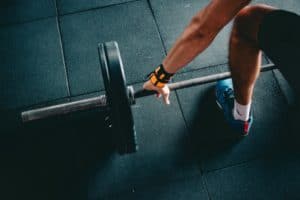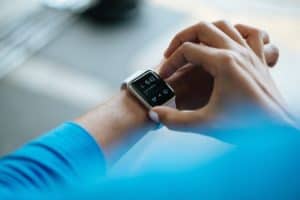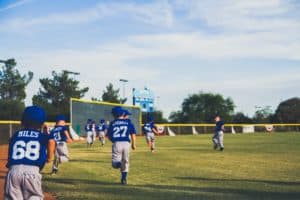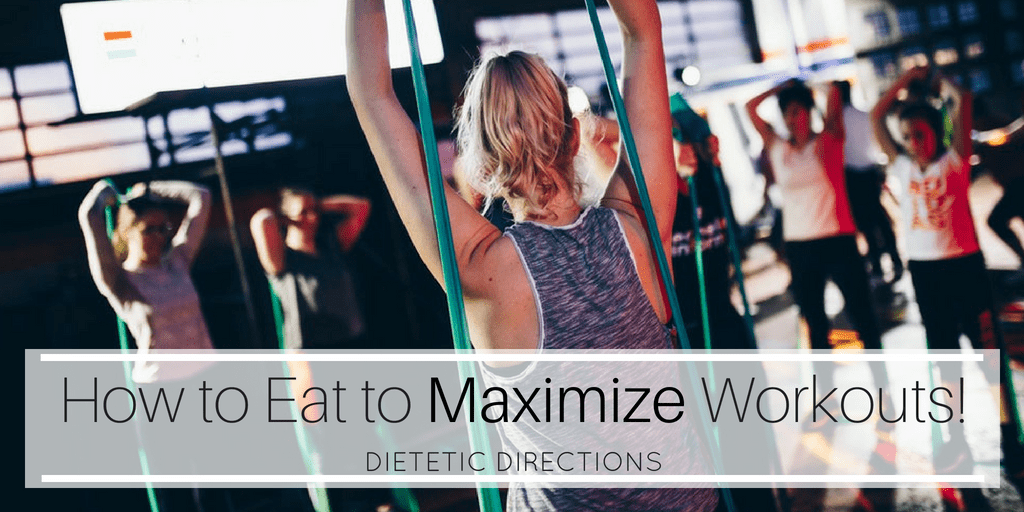
How to Eat to Maximize Workouts!
We all know being active offers health benefits – specifically, decreased risk for diabetes, high blood pressure, osteoporosis, depression, stress and anxiety (Statistics Canada, 2015). However, only one in five (or 20%) of Canadians achieve the recommended 150 minutes (2.5 hours) of physical activity per week.
Do you get enough? What would this amount look like in your busy schedule? Going to a one-hour Zumba class and a 20-minute brisk walk after dinner/lunch four times a week? This would be terrific and set you in the minuscule 20% of Canadians who achieve these recommendations.
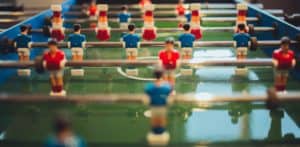
Today’s blog describes how to eat to maximize workouts. I will break down the major macronutrients (or the two main food types) required for exercise and endurance. I will also touch on hydration and how to optimize the timing of foods before exercise.
Just Getting Started?
When incorporating activity into your routine it is common to “go gang busters!” This means, the weather is nice and you want to work out more so you set an (overly) ambitious goal. What often results is that you stick to it for only a short time. Instead, try to focus on CONSISTENCY and less on performance. This means, setting a moderate (fairly easy to achieve) goal and doing this regularly. After this becomes a habit, and then only, increase the amount of time or the intensity.
I also recommend noticing the emotional benefits from your workouts. How do you feel after Spinning, Pilates or Yoga? Do you feel a decrease in stress, an increase in strength or flexibility? Perhaps a boost in confidence and/or mood? Research show that noticing internal benefits are motivating for long-term maintenance of physical activity. Click here for a related blog on how self-love improves diet and physical activity.
Research show noticing internal benefits = motivation 4 maintaining physical activity! Click To Tweet3 Ways to Maximize Sports Performance:
If you’re a client, a friend or an avid Dietetic Directions blog reader, you know I love positivity in nutrition! Eating is fun and needs to be celebrated and enjoyed. When working with clients for sports nutrition, I encourage them to think of FOOD as FUEL. Would you underfeed (or poorly feed) a metaphorical race-horse and expect it to win the big race? Of course not. Our bodies are the same. We need proper fuel to run efficiently.

Two Main Macronutrients:
-
Carbohydrates: Your Body’s Most Efficient Fuel
Carbohydrates help increase energy or muscle fuel. In fact, stored carbohydrates are known as “glycogen” which is a fancy word for muscle fuel. When working out, your body prefers to use stored carbs or glycogen for energy. If you do not have enough stored glycogen, your body will actually break down muscle before fat mass. All the more reason why we need to utilize carbs for energy as part of balanced meals throughout the day.
Carbohydrates (noun): Any one of various substances providing the body with energy and are made of carbon, hydrogen, and oxygen (Merriam-Webster Dictionary).
Carbohydrates Include:
- Starchy vegetables (potatoes, peas, corn, squash)
- Whole grains (bread, pasta, cereals, quinoa, rice, bulgur, wheat berries etc.)
- Pulses (beans, chickpeas and lentils)
- Milk
- Fruits (fresh, frozen, fried fruits)
-
Protein: Building Blocks for Muscle
Protein is needed to facilitate muscle growth and repair. Protein is NOT burned as a source of energy. Protein is also involved in growth, maintenance and repair of red blood cells, skin, nails and hair along with involvement in hormone production.
Protein (noun): A nutrient found in food that is made up of many amino acids joined together, is a necessary part of the diet, and is essential for normal cell structure and function (Merriam-Webster Dictionary).
Protein Includes:
- Meats & fish (chicken, beef, pork, turkey, eggs, salmon, sole, etc.)
- Pulses (beans, chickpeas and lentils)
- Milk, yogurt, kefir, cheese or cottage cheese
- Nuts, seeds, hemp hearts, nut butters
- Tofu, tempeh, edamame, soy milk
- Protein powder
-
Understand Timing of Macronutrients:
When it comes to eating for energy and sports nutrition, it is important to understand how our body utilizes food as energy. For example, before exercise, it is important to have foods that contain a source of carbohydrates to boost your energy and fuel your muscles.
Foods to Avoid Before Workout:
- Foods high in fibre (over 5 grams per serving) add bulk and slow digestion. This will feel heavy in the stomach before a workout.
- Fatty foods slow digestion and may lead to discomfort if consumed close to a workout.
- Sweets cause a quick rise and fall in blood sugar and do not sustain lasting energy.
Instead, before a workout, choose options like fruits, whole grain breads or small muffin or cold cereal (low in sugar and moderate in fibre).
Find out what types of foods to AVOID before a workout! #SportsNutrition Click To TweetProtein Timing:
- Your pre-exercise snack should contain protein if 2 hours + before exercise. This is because protein slows the absorption of carbs and makes them less available for energy.
- Choose lean meats (turkey, chicken breast, roast beef, ham), light peanut butter, fish, eggs and low fat dairy or soy products if you have adequate time.
Hydration Basics:
Keeping yourself well hydrated keeps your body efficiently burning calories. Well hydrated people also have lower perceived fatigue and often their muscles feel less sore the next day.
- Be sure to PRE-HYDRATE: by drinking about 500mL of water 30-60 minutes BEFORE exercise.
- Aim for 500mL-1L of fluid per hour of exercise.
- Rehydrate after a workout to replenish fluids lost during exercise. If you choose to weigh yourself before and after working out, drink 750mL for every pound lost.
- Note: Hydrated muscle is less prone to injury because it is less stiff and can move better.
Bottom Line:
Food is fuel! Choosing the right types of food before a workout can maximize performance and lead to less digestive discomfort. Remember that carbohydrates are our body’s preferred energy source and serve as muscle fuel. Protein acts as our building blocks for muscle growth and repair. Remember that protein takes longer to digest before a workout and carbs are best before a workout if they are low in fibre, fat and added sugars.
If you are running a marathon, or working out for longer than 90 minutes, discuss with a dietitian how to best fuel your body before, during and after workouts. Many of my sports or gym-going clients find it helpful to come up with a plan to determine what to eat based on schedule and timing of workouts. Be sure to stay hydrated and most of all, have fun!
Now it’s your turn! How do you like to fuel your body before a workout?


